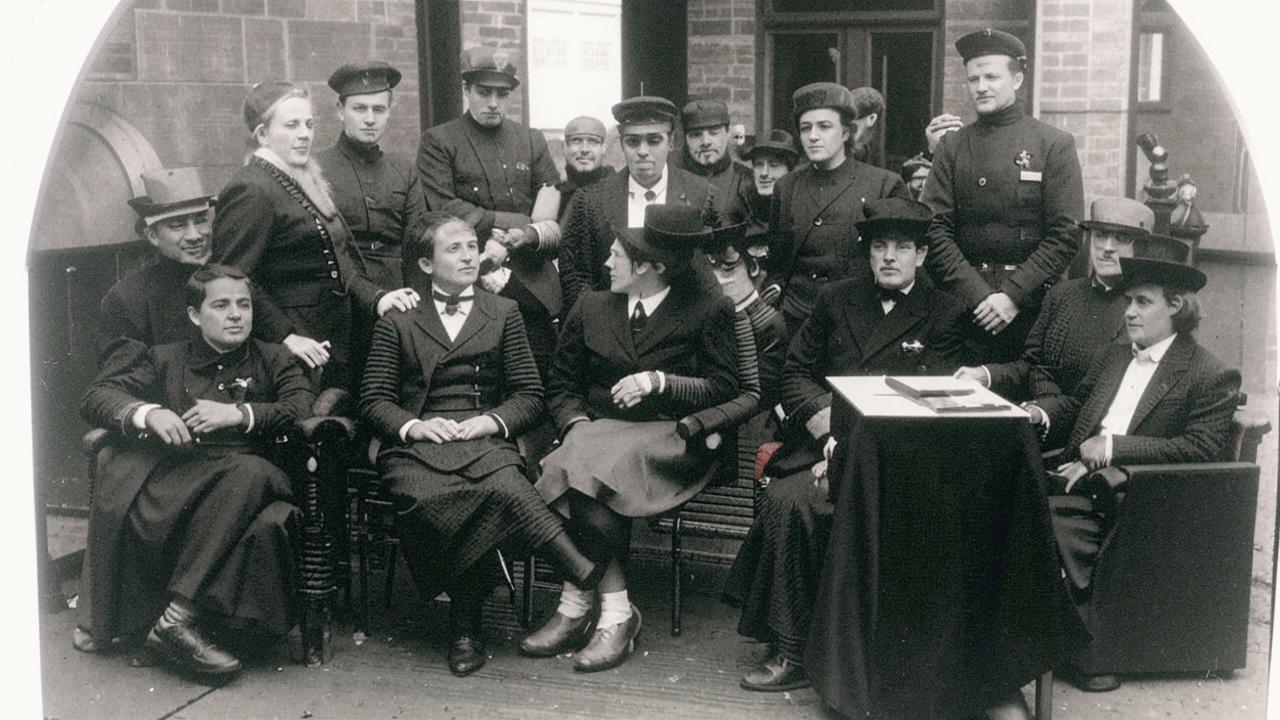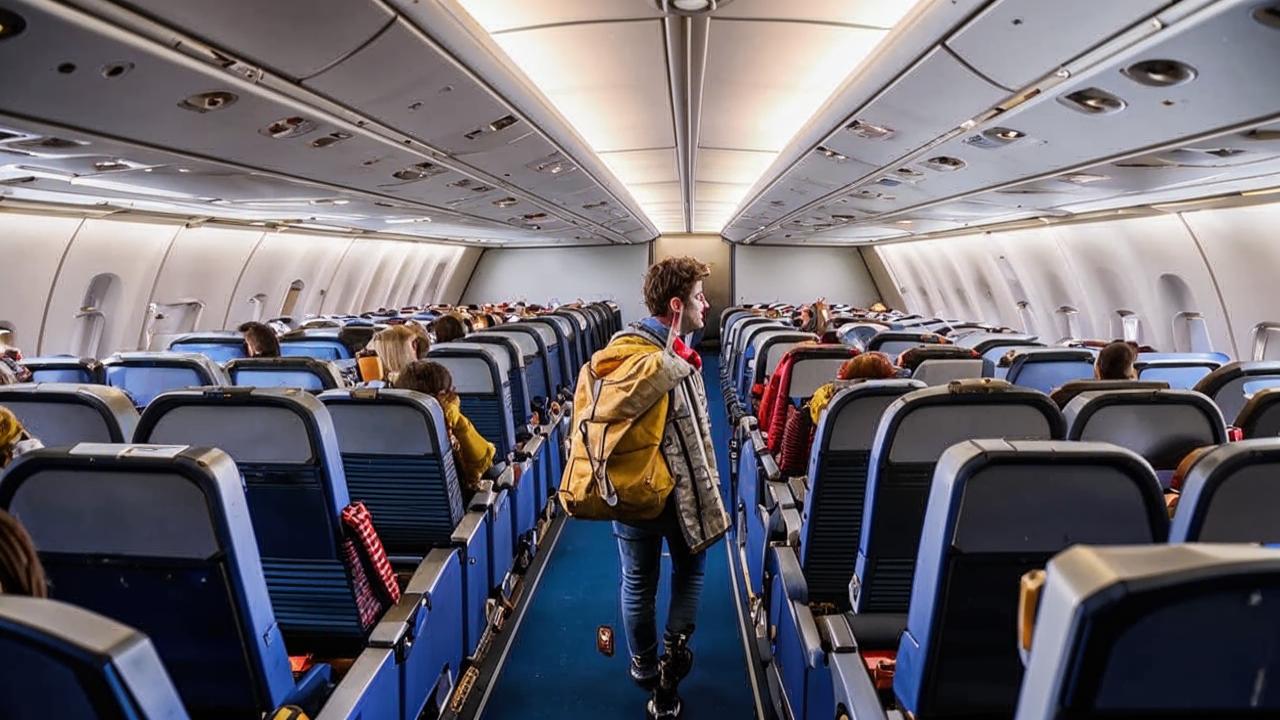Fear of flying causes many people to avoid traveling by air. Although the risk of getting into an airplane crash is practically minimal – there is one death per 8 million flights. What motivates people to refuse one of the most convenient ways to travel long distances and how to stop being afraid?
Let’s find out together with Olga Palekha och Evgeny Nemtin.
Why does fear of flying appear?

Olga Palekha
psychotherapist
Firstly, an airplane is a relatively young mode of transportation. Secondly, news about terrible catastrophes and tragedies are very often flashed in the network – the media willingly cover such topics. This information, of course, scares a person. But statistics shows that airplane is the safest mode of transportation. There are 1000 times fewer cases of tragic endings related to flight than accidents on the road. And third, people have little experience with flying. Rarely do people fly every day, so every time a flight makes a person apprehensive. If traveling by airplane were commonplace for everyone, like driving a car, there would be much less fear. Those who have a job that involves constant traveling around the world have a much simpler attitude to air travel.
Fear appears at the moment when a person is deprived of choice. The passenger finds himself in a hopeless situation – the aircraft, restricted from all sides, is oppressive and causes fear. Of course, who wants to be trapped in an “iron box” at an altitude of 10,000 meters.
“Fear of flying is a very common phenomenon. In a confined space, and even more so at altitude, a person loses control of the situation. In case of unforeseen circumstances, he cannot stop the flight and go outside the airplane,” says psychotherapist Evgeny Nemtin. The fear of losing control over the situation awakens in us the most unpleasant experiences. “Knowing that the flight may turn out to be a tragedy causes panic and anxiety. This is accompanied by rapid breathing and heartbeat, nausea and motion sickness in the airplane. Aerophobia can even lead to loss of consciousness,” explains psychotherapist Olga Palekha.

How to cope with fear?
1. Concentrate on a positive future
Contrary to the expression “the process is more important than the result”, in the case of a flight, first of all, the result is important – so concentrate on it. Especially since for many people flying is often associated with visiting new cities and countries. During the flight, imagine how many interesting things await you ahead – sights, new acquaintances, experience, vivid impressions, successful realization of the project that awaits you at your destination.
2. Try to distract yourself
Be sure to take headphones with you on the flight, turn on your favorite playlist or pleasant music – it will put you in a calm mood and help distract you from what is happening on board. Plus with your favorite track, it’s easier to visualize a positive future and anticipate your trip.
3. Get into a comfortable position
Getting your thoughts in order will help you get into the most stable position possible – in body psychology, this method is called grounding. With the help of this technique you will quickly get your emotions under control and reconnect with reality. The points of support in sitting should be the buttocks and feet – the centers of gravity are on these parts of the body. Whenever your body weight shifts forward or backward, return to the starting position. For stability, you need to keep your feet firmly planted on the floor. Take off your shoes and step on the floor with each foot – this will give you a feeling of support and ground under your feet – literally.
4. Breathe deeply
Practice conscious breathing – the practice will help oxygenate your brain and bring you to a state of peace and balance. No special skills or conditions are required. The practice can be done in a crowded place – no one will know what you are doing. Take a deep breath, then slowly exhale. Don’t think about anything, just breathe as you go. Repeat the technique every 20-30 minutes for 30 breathing cycles.
5. Team up with interesting people
Pleasant company will help to overcome fear. It is ideal to fly together with family and friends – the presence of important people will give you a feeling of calmness, support and encouragement. If this is not possible, join other interesting people and fellow travelers – for example, with a neighbor in the plane. While socializing, time will fly by quickly.
6. Prepare yourself before the flight
The physiological aspect is also very important. Drink plenty of water and get plenty of sleep before your upcoming trip – the average for an adult is 7-9 hours. In this case, you will have enough energy to endure the flight.

To summarize
To carry the flight well and stop panicking, prepare yourself mentally and physically. In the plane take the focus of attention to pleasant thoughts about the upcoming journey, turn on your favorite playlist and concentrate on a positive future.
If possible, find an interesting conversation partner or read a book, for example, “An Easy Way to Stop Being Afraid of Flying” by author Alexei Gervash. And do not forget to rationalize what is happening – periodically remind yourself that the plane is the safest transport.
In case you can’t even cross the threshold of the airplane, consult a psychologist. Anything can happen – perhaps someone frightened you in childhood or you were in an accident. Bad experiences with flying, severe turbulence, emergency landing could also be the cause of anxiety. Finding the origins of the fear is very important, but only a competent specialist can help you deal with it.






